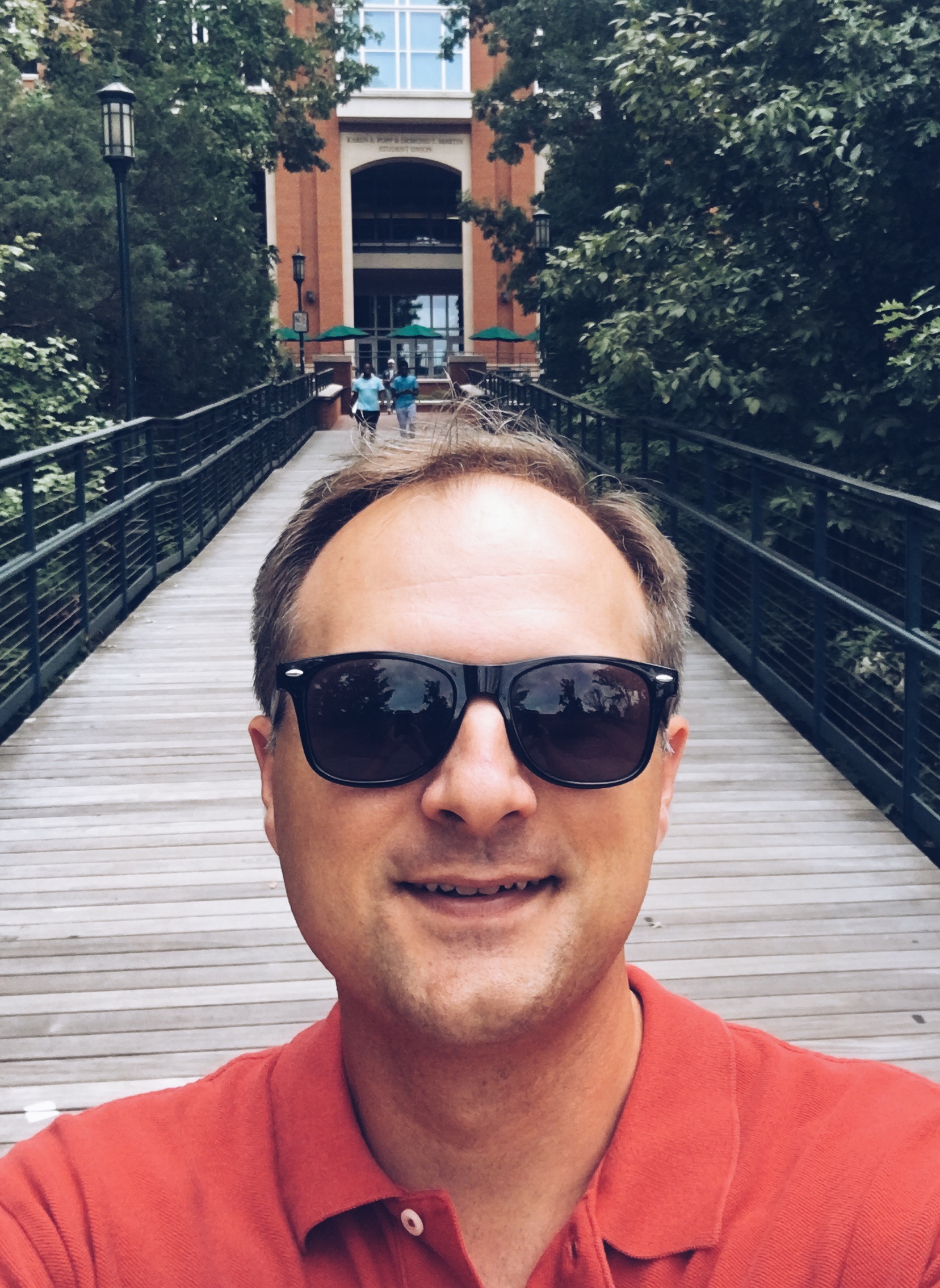ACADEMIA

Portrait of the Grad Student at Orientation
Now, more than ever, I understand that my success as an educator depends upon my ability to discern and lead.
On my desk at Mitchell Community College is a stack of nearly one hundred letters dutifully composed by scholarship recipients. We ask those who receive financial aid to write to the benefactors of their funds, in part because it’s a compelling way to thank donors, but also because connecting them together is often a powerful experience for everyone involved. Reading over these letters is humbling for me; students write about adversities that range from homelessness to finances to learning disabilities. The futures they dream of are bright but pragmatic, and the goals they set down for themselves on paper are intimate in their candor.
These letters and the important lives behind them form the fabric of the decision for why I have spent my career in education. I think of these scholarship recipients as my neighbors. In a sense, I’ve always felt that tie to those education must serve. When I graduated from Western Carolina University in 2003, I was obligated by my Teaching Fellows scholarship to spend the next four years in the classroom. I taught with a youthful and crudely formed ideology for why I thought public education was important and a righteous commitment to teaching my students well. On every syllabus I handed out, I included my personal mantra: Education is an uncomfortable place.

